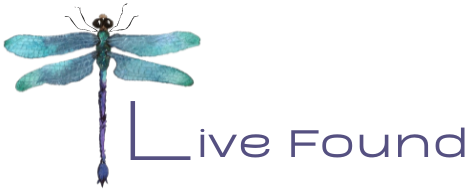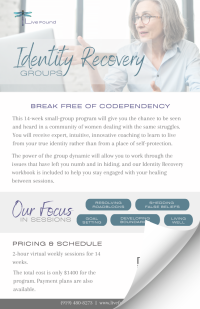Have You Been Wandering Around Lost?
Imagine what it might feel like to truly know who you are. Not just your belief system, your roles, your job, or your education, but your real, deeper identity. Many of my clients come to me expressing sentiments like, “I don’t know who I am anymore,” “I feel numb,” or “Nothing makes sense, and I am completely confused.” Along their way, they’ve lost themselves in the drudgery of everyday life and the cost of people-pleasing, compounded by trauma and loss. Their minds reel from confusion and pain, leaving them with an urgent need to reclaim their sense of self.
They often ask questions such as, “How do I fix this?” “Will I ever feel right or good again?” “Can my partner change?” “Am I crazy?” “Why is my partner always so angry?” “How can I fix my relationship?” “Can I stop being pathetic?” “How can I have a happy marriage?” “Is this even about marriage?” “How do I find myself again?” and, “Can I do this alone?”
Stopping To Ask For Directions
My passion lies in helping them navigate through this chaos to rediscover themselves, to feel again, and to build deeper, more meaningful connections. If you find yourself in a similar situation, here are three steps to begin your healing journey.
1. Recognize and Validate Your Experience
Understanding that you are not crazy and that your feelings are valid is the first crucial step. Often, those experiencing ambient abuse and chaotic relationships begin to question their sanity. It’s important to realize that you are not overly sensitive, too emotional, too demanding, or too compliant. You are not weak or passive-aggressive. Instead, you are dealing with individuals who do not allow you to be authentic or to connect meaningfully. Recognize that your environment and the people around you can deeply impact your emotional and mental well-being.
2. Establish Boundaries and Nurture Your Soul
Healing begins with setting strong boundaries and taking care of your own soul. You might still be in a destructive or narcissistic relationship, but healing is possible even in these challenging environments. This process involves grieving, establishing good boundaries, evaluating your motivations, and using these as guideposts to direct your path. Guarding your soul is vital because it is the wellspring of your life. By nurturing your inner self, you can navigate the world around you without losing your identity.
3. Focus on Your Own Healing
Your healing journey is personal and does not depend on the cooperation, participation, or approval of others. Relationships might recover if both parties are willing to participate, but even if they do not, you can still thrive. It’s essential to understand that you are not defined by your relationship but as an individual within it. Your healing does not hinge on the other person’s approval. By focusing on your own recovery, you can connect with people around you wisely and deftly, without letting their brokenness define you.
Take the First Step A New Direction Today
If you’re ready to start your healing journey and rediscover your true self, I’m here to help. Schedule a one-hour introductory session with me today. Together, we can navigate through the chaos, address your pain, and begin the process of healing. Your path to self-discovery and meaningful connections starts here.
By following these steps, you can start reclaiming your life and sense of self. Healing is a journey, and with the right support and tools, you can find your way back to a fulfilling and authentic life.


